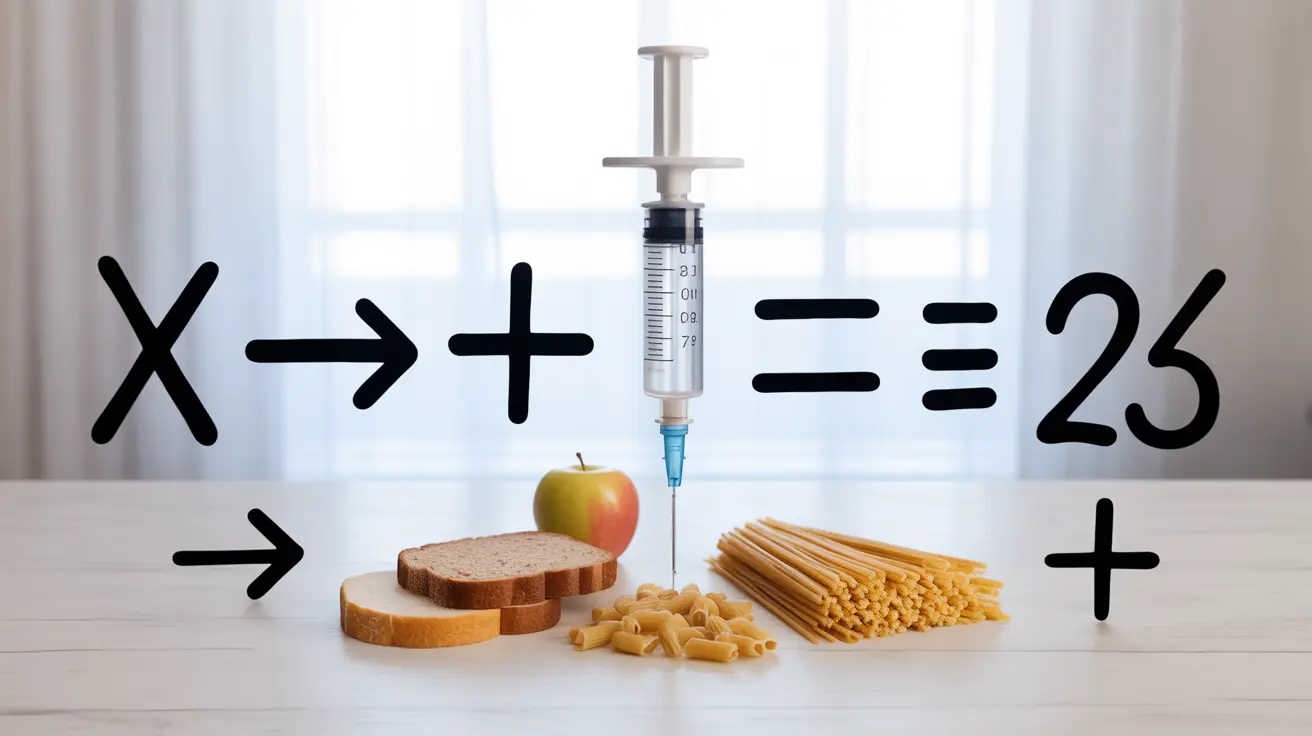Managing diabetes effectively requires understanding how to balance insulin doses with carbohydrate intake. The insulin-to-carb ratio formula is a crucial tool that helps people with diabetes determine exactly how much insulin they need for the foods they eat. This guide will help you understand how to use this important calculation and optimize your diabetes management.
Whether you're new to insulin therapy or looking to fine-tune your diabetes management, mastering your insulin-to-carb ratio can lead to better blood sugar control and more flexibility in your meal choices.
What Is an Insulin-to-Carb Ratio?
An insulin-to-carb ratio represents how many grams of carbohydrates one unit of insulin can cover. For example, if your ratio is 1:15, this means one unit of insulin will process 15 grams of carbohydrates. This personalized calculation helps ensure you're taking the right amount of insulin for your meals.
Finding Your Personal Insulin-to-Carb Ratio
Your insulin-to-carb ratio is highly individual and depends on several factors, including:
- Your body weight
- Insulin sensitivity
- Time of day
- Physical activity level
- Hormonal changes
Healthcare providers typically start with common ratios, such as 1:10 or 1:15, and adjust based on blood sugar monitoring results. The process requires careful tracking and adjustment over time.
How to Calculate Your Insulin Dose
To calculate your insulin dose using the insulin-to-carb ratio formula, follow these steps:
- Count the total carbohydrates in your meal
- Divide the total carbohydrates by your ratio number
- The result is your insulin dose
For example, if your ratio is 1:15 and you're eating 45 grams of carbohydrates:
45 ÷ 15 = 3 units of insulin needed
Factors Affecting Your Insulin-to-Carb Ratio
Several factors can influence your insulin-to-carb ratio throughout the day and over time:
- Morning hormone levels
- Physical activity
- Illness or stress
- Menstrual cycles
- Weight changes
- Medication changes
Combining Ratio Calculations with Correction Doses
Sometimes you'll need to combine your meal insulin with a correction dose for high blood sugar. This requires adding your correction dose to your meal dose after calculating each separately. Always follow your healthcare provider's guidance on correction factors and target blood sugar ranges.
Monitoring and Adjusting Your Ratio
Regular blood sugar monitoring is essential for determining if your insulin-to-carb ratio is working effectively. Keep detailed records of:
- Pre-meal blood sugar levels
- Carbohydrate intake
- Insulin doses
- Post-meal blood sugar levels
- Physical activity
- Stress levels
Frequently Asked Questions
What is the insulin-to-carb ratio formula and how do I use it to calculate insulin doses? The insulin-to-carb ratio formula is your total meal carbohydrates divided by your personal ratio number. For example, with a 1:15 ratio, if eating 45g of carbs, you'd need 3 units of insulin (45 ÷ 15 = 3).
How do I find my personalized insulin-to-carb ratio and why does it vary between people? Your healthcare provider will help determine your starting ratio based on factors like weight, insulin sensitivity, and activity level. It varies because everyone's body processes insulin and carbohydrates differently.
Can my insulin-to-carb ratio change between meals or over time, and what factors cause this? Yes, your ratio can vary throughout the day and over time due to factors like hormones, physical activity, stress, illness, and weight changes. Morning ratios often differ from evening ratios due to dawn phenomenon.
How do I combine my insulin-to-carb ratio dose with correction insulin for high blood sugar? Calculate your meal dose using your insulin-to-carb ratio first, then add any correction dose needed for high blood sugar. Add these numbers together for your total insulin dose.
Why is it important to work with a healthcare professional when adjusting my insulin-to-carb ratio? Healthcare professionals have the expertise to safely adjust ratios based on blood sugar patterns, prevent dangerous fluctuations, and consider other health factors that might affect your insulin needs.




